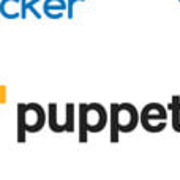We use this solution for any server that needs the database, for any service applications that are Linux compatible.
We use a specific version for each user, but when we do a system, we use the latest. We deploy the latest version except when a vendor specifies a different version.
Usually, the developers request service for themselves and then the people using those servers will be varied. There are so many people using this solution that we cannot determine the exact number. There are some internal systems like finance or HR, for example. So, the numbers are not consistent.
As more products and requests come out, I think we are increasing the number of users.
The solution is deployed on-premises.





















